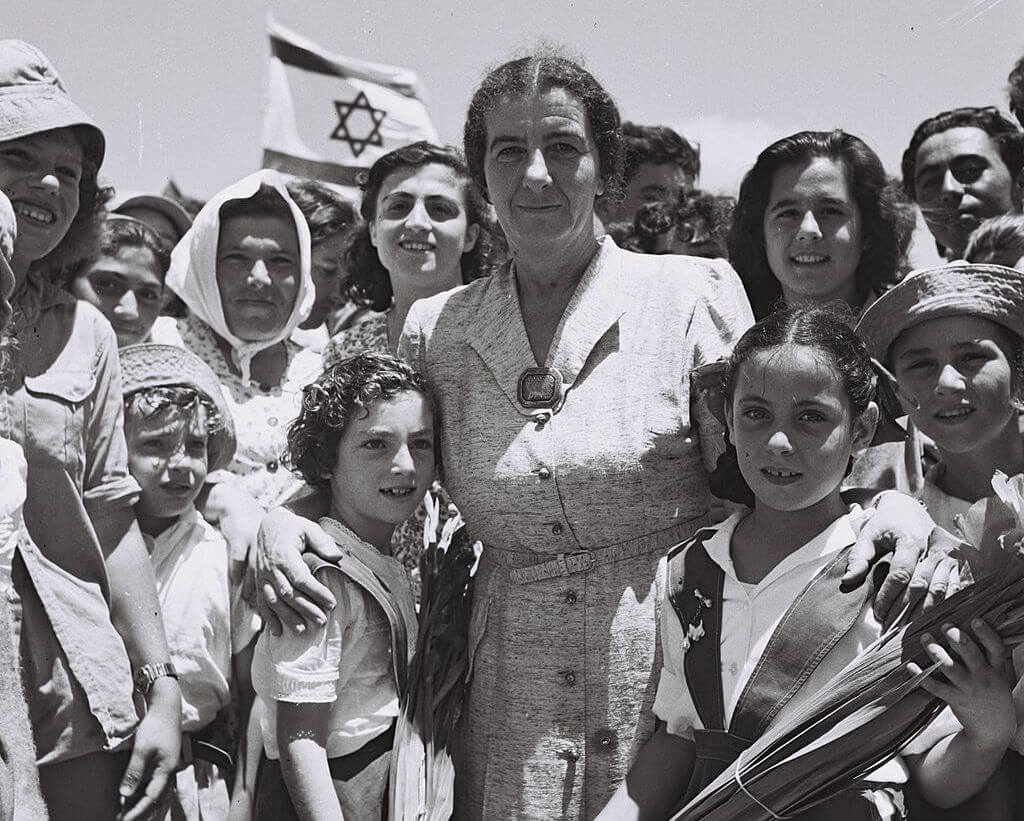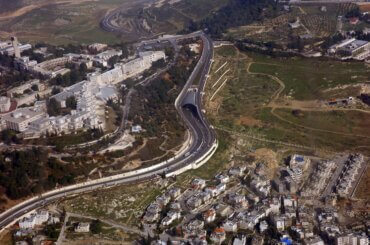THE INVENTION OF ANCIENT ISRAEL
The Silencing of Palestinian History
By Keith W. Whitelam
296 pp. Routledge. £24.79
What do you get when you mix ten decades of biblical studies, an Old Testament, the ideology of Zionism, and a tablespoon of politically motivated archaeology, all mixed in a bowl of historical evidence? Author Keith W. Whitelam undertook this recipe and reports on the results in “The Invention of Ancient Israel: The Silencing of Palestinian History” (of 1997). The short answer to the question is that one is left with a toxic modern state, hell-bent on crafting an umbilical cord between itself and a mythical 2000-year old past. In other words, the State of Israel.
If no one were hurt during this process, one could just turn a blind eye and be content that, To each his own. But when the results of the recipe never produce a stable product, and an entire people are continuously being battered into oblivion, we each have a responsibility to step in and say enough is enough.
“The Invention of Ancient Israel” is not an easy read. It is one of those books that when you finish reading the last lines and look up you feel like you just emerged from a washing machine. (I was moved to revisit Whitelam’s book by Israel’s plans to annex parts of what it calls “Judea and Samaria,” the West Bank.) Utilizing a heavy dose of quotations from a long list of resources, Whitelam builds a case that “The Silencing of Palestinian History” has been happening, purposely and for very political ends. He writes,
“The problem here is that the notion of a ‘Palestinian history’ is confined to the modern period, an attempt to articulate accounts of national identity in the face of dispossession and exile. It is as if the ancient past has been abandoned to Israel and the West.”
He goes on to note a passage from “Blaming the Victims: Spurious Scholarship and the Palestinian Question” (Said et al. 1988) that “Palestine has been the home to remarkable civilization ‘centuries before the first Hebrew tribes migrated to the area’ (1988: 235).” This is hard to imagine if you listen to the discourse on Israel in today’s world.
All of these efforts to wipe Palestinians from history, ancient or otherwise, do not come as a surprise for those of us directly engaged with Jewish and Christian Evangelical audiences. I can not recall the number of times, while in an impassioned—and sometimes heated—debate, the questions will be thrown to us out of the blue. Where did you Palestinians come from? Was there ever a Palestine? Isn’t Palestinian identity merely a reflection of their dispossession? All of these are posed as probing questions, whereas, in reality, they are all the same outrageous and racist remark uttered by Israel’s only female prime minister (1969-1974) Golda Meir. “There were no such thing as Palestinians,” she was quoted as saying in the Sunday Times and Washington Post in June 1969. “When was there an independent Palestinian people with a Palestinian state? … It was not as though there was a Palestinian people in Palestine considering itself as a Palestinian people and we came and threw them out and took their country away from them. They did not exist,” Meir said.
Sadly, 51-years later this hogwash is still being propagated. It may be sad, but it is not surprising. As Whitelam points out, “The conceptualization and representation of the past is fraught with difficulty, not simply because of ambiguities and paucity of data but because the construction of history, written or oral, past or present, is a political act [emphasis added].” A political act indeed.

One such political act of reconstructing the ancient past to serve the present is the excavation and rebirth of Masada, an ancient fortress in southern Israel’s Judean Desert, which sits on a massive plateau overlooking the Dead Sea. According to a first-century Romano-Jewish historian, the siege of Masada by Roman troops from 73 to 74 CE, at the end of the First Jewish–Roman War, ended in the mass suicide of the 960 rebels from a splinter group of the Jewish Zealots who were hiding there. Whitelam notes,
“[T]he political significance of Masada is encapsulated in its choice as the location for the annual swearing-in ceremony for Israeli troops and expressed through the nationalistic slogan… ‘Never again shall Masada fall’.”
Masada “developed from a relatively obscure incident in the past, ignored in the Talmud and medieval Jewish literature, to represent the paradigm of national identity.”
Interestingly, Whitelam writes,
“Biblical scholarship employs a bewildering array of terms for the region: ‘the Holy Land’, ‘the Land of the Bible’, ‘Eretz Israel’ or ‘the Land of Israel’, ‘Israel’, ‘Judah’, ‘Canaan’, ‘Cisjordan’, Syro-Palestine’, ‘Palestine’, and ‘the Levant’. To the casual reader…these terms may appear to be interchangeable or even neutral. Yet the naming of land implies control of land: designations such as ‘Levant’, ‘Middle East’, or ‘Near East’ betray a Eurocentric conception of the world.”
Maps, like names, similarly play a defining role for a particular discourse.
In exposing various scholars’ works on Palestine, Whitelam makes a keen observation. Even when scholars admit that “this region was not the sole reserve of Israelites and Judaeans but was populated by various ‘inhabitants of ancient Palestine,’” that admission “does not extend to their identification as ‘Palestinians.’ The inhabitants are for the most part anonymous, only taking on an identity when they become Israelite or Judaean.” He then concludes that in these scholars’ works, “It is possible to refer to the ‘Palestinian coastline’, ‘Palestinian agriculture’, or the ‘Palestinian economy’, but the inhabitants are never described as Palestinian.”
All of these are man-made distinctions, no doubt. Can we fully blame the Jewish community for being perplexed in trying to defend Israel today in the manner the Zionist and Israeli operatives desire them to? It is no wonder why so many keep repeating the same talking points (a.k.a. hasbara) ad nauseam, even after being presented factual information about modern Israel’s unfortunate founding. It seems that ‘Ancient Israel’ is needed to blur modern Israel’s war crimes.
The backbone of this book is a call for “the gradual exposure of the interrelationship of the discipline of biblical studies with politics [to] provide a better understanding of the forces which have helped to shape the imagination of a past that has monopolized the history of the region.”
As such, a resultant of this approach is the conclusion that “the picture of Israel’s past as presented in much of the Hebrew Bible is a fiction, a fabrication like most pictures of the past constructed by ancient (and, we might add, modern) societies.”
Inconvenient facts
While reading this book many other writings and authors came to mind.
Israeli historian Ilan Pappé’s The Ethnic Cleansing of Palestine which is based on unclassified Israeli documents that were re-classified after the publishing of his book. Yes, there is much to hide.
Outstanding reporting from Haaretz by Israeli journalists, Adam Raz’s Secret Israeli Document Reveals Plan to Keep Arabs Off Their Lands, Hagar Shezaf’s Burying the Nakba: How Israel Systematically Hides Evidence of 1948 Expulsion of Arabs, and Noa Landau’s Israel Set Up a Front Company to Boost Image and Fight BDS. Yes, real money and real effort are being spent to hide the past and dictate the present.
Palestinian author Raja Shehadeh’s TEDxRamallah talk, Re-imagining the Great Rift Valley, and Palestinian professor Basem L. Ra’ad’s Hidden Histories: Palestine and the Eastern Mediterranean. Yes, it is an act of non-violent defiance today to speak of the Palestine that existed before Israel.
The biblical scholarship may have chosen, to date, to silence Palestinian history but Israel and the world at large are going to need to come to terms with the Palestinian present because those of us in Palestine are not going anywhere and those of us in exile are coming home, sooner or later.



Zionists historiology has a clear goal: to legitimate Zionism. One of the ideas it builds on is that states belong to ethnic peoples and that an ethnic people should have a state, like e.g. Chaim Weizman said “… as Jewish as England is English.” They try to support the idea that Palestine belongs to the Jewish people, by focussing on Jewish history in Palestine and erasing Palestinian history.
It’s okay, as this article does, to challenge this Judeo-centric narrative, but one should not make the mistake to legitimate the idea behind it, that states belong to ethnic people.
A state does not belong to an ethnic people, but to all the people who belong to the territory of the state, regardless of their history! The idea that a state belongs to an ethnic people is a racist idea. This idea breeds anti-Palestinian racism in Israel and antisemitism in the diaspora.
The subtitle of this article is a bit troubling:
“Hellbent on crafting an umbilical cord between itself and a biblical, mythical 2000-year old past, Israel has erased the ancient history of Palestinians.”
If Israel crafted a ‘mythical 2000-year old past’ (actually about 3,500 years), then the entire Christian Church and also Islam is built on the same myth. The foundations of these monotheistic faiths are rooted in the story of Abraham, the shared father-figure whose origins are lost in the mists of time but recorded in the holy books of the three principal one-god religions.
Israelis love to denounce and delegitimise Palestinian national myths and aspirations, and Palestinians are now jumping on this slippery bandwagon also – using terms like ‘so-called ancient Jewish temple’ etc.. Not a good development. Better we accept each other’s myths, and channel energies into ending the Occupation, building a shared and democratic society, and inviting home the generations of the refugee camps.
“Stealing and appropriating the culture and history of indigenous peoples is a typical characteristic of all modern colonial-settler states, but usually accomplished once the indigenous people in question has been eliminated, dispossessed, or otherwise seemingly defeated therefore making it safe to do so. The colonial-settler state of “Israel,” established on the ruins of Palestine and through the expulsion of the majority of its indigenous population in 1948 and after, is no different.
The Israeli theft of all things Palestinian, however, does not simply come from misguided notions of nationalism or childish pride as is often argued by Western apologists, but is rather a conscious political policy of the state that seeks to erase Palestine from historical memory, particularly within Western discourse. Indeed, the continuing ethnic cleansing of Palestinians from their historic homeland goes hand in hand with the theft of Palestinian land, homes, history, and culture. It is an essential part of the larger, long-term Zionist project of eradicating the Palestinian nation altogether, literally writing it out of history while simultaneously assuming its place.”
https://www.middleeasteye.net/big-story/stealing-palestine-study-historical-and-cultural-theft
https://scontent.fcxh2-1.fna.fbcdn.net/v/t1.0-9/116132836_3287469271313859_8499799269123755388_n.jpg?_nc_cat=111&_nc_sid=8024bb&_nc_ohc=cV6TvczISsYAX83p6Ki&_nc_ht=scontent.fcxh2-1.fna&oh=e9f0144951bf65c12529eca196e31765&oe=5F4AB3D8
Israel! the only democratic state in the Middle East!!
A few examples of “The Silencing of Palestinian History”:
In 1920, Israel Zangwill, the influential Jewish essayist, proposed in The Voice of Jerusalem, that there should be an “‘Arab exodus’…based on ‘race redistribution’ or a ‘trek like that of the Boers from Cape Colony,’ which he advocated as ‘literally the only way out of the difficulty of creating a Jewish State in Palestine.’” ‘We cannot allow the Arabs to block so valuable a piece of historic reconstruction….To fold their tents & silently steal away is their proverbial habit: let them exemplify it now.’” (Zangwill, The Voice of Jerusalem, p. 103)
Vladimir Jabotinsky: “We Jews, thank God, have nothing to do with the East….The Islamic soul must be broomed out of Eretz-Yisrael.” (Ya’acov Shavit, “The Attitude of Zionist Revisionism towards the Arabs.” (Zionism and the Arab Question, p. 74.) Nor did he hide his racism. He viewed Palestinians as “yelling rabble dressed up in gaudy, savage rags” (Joseph Schechtman, Rebel & Statesman: The Vladimir Jobotinksy Story, the Early Years, New York: T. Yoseloff, 1956, p. 54)
During a meeting of the Jewish Agency Executive on June 12/38, Ben-Gurion called for expulsion of the Palestinians: “I support compulsory transfer. I don’t see in it anything immoral.” (Benny Morris, “Refabricating 1948”)
Josef Weitz, founder of the Jewish Agency’s Transfer Committee: “…there is no room for both people together in this country….The only solution is a Palestine…without Arabs. And there is no way other than to transfer the Arabs from here to the neighbouring countries, to transfer all of them; not one village, not one tribe, should be left.” (Yosef Weitz, My Diary and Letters to the Children, 1965.)